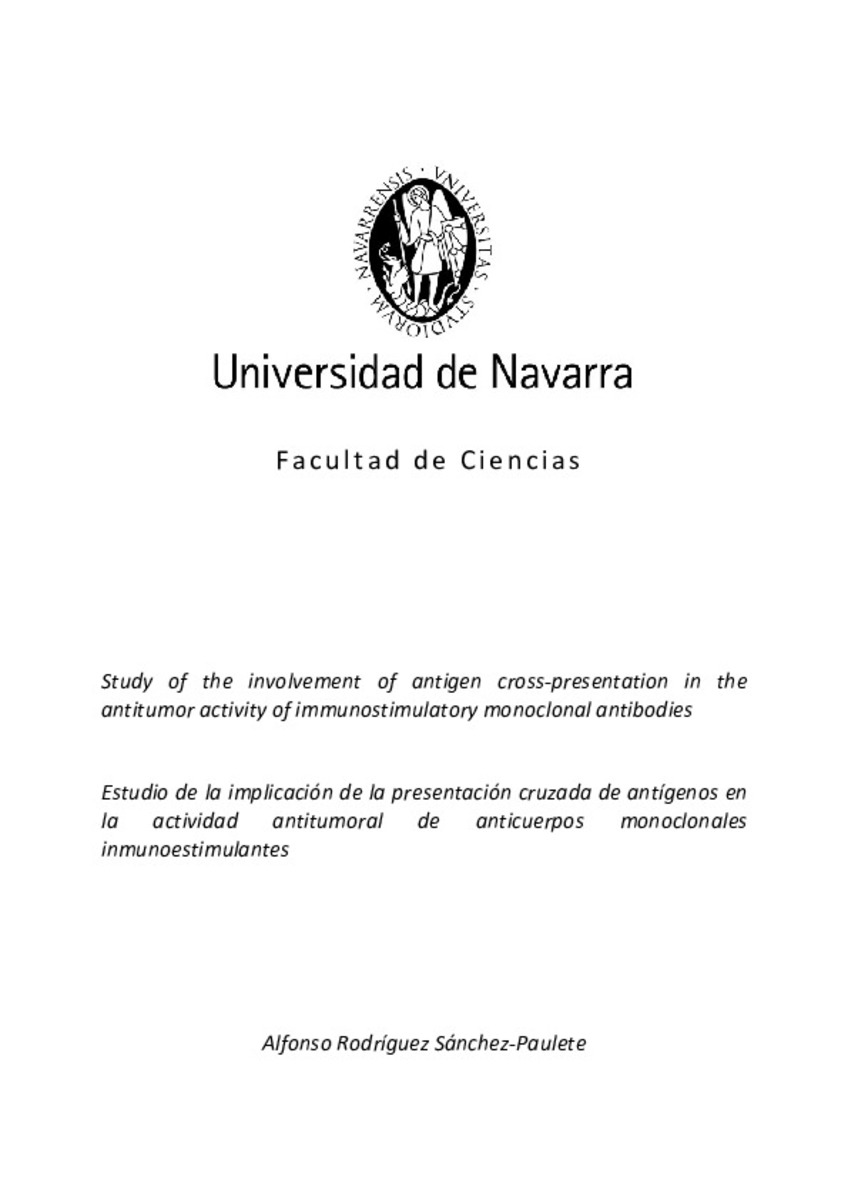Estudio de la implicación de la presentación cruzada de antígenos en la actividad antitumoral de anticuerpos monoclonales
Other Titles:
Study of the involvement of antigen cross-presentation in the antitumor activity of immunostimulatory monoclonal antibodies
Keywords:
Materias Investigacion::Ciencias de la Salud::Inmunología
Oncología clínica
Presentación cruzada de antígenos
Antigen cross-presentation
Anticuerpos monoclonales inmunoestimulantes
Immunostimulatory monoclonal antibodies
Cancer immunity
Cancer immunotherapy
Intratumoral immunotherapy
Defense Date:
26-Apr-2018
Publisher:
Universidad de Navarra
Citation:
RODRÍGUEZ, Alfonso. "Estudio de la implicación de la presentación cruzada de antígenos en la actividad antitumoral de anticuerpos monoclonales". Melero, I. (dir.). Tesis doctoral. Universidad de Navarra, Pamplona, 2018.
Statistics and impact
0 citas en

0 citas en

Items in Dadun are protected by copyright, with all rights reserved, unless otherwise indicated.








